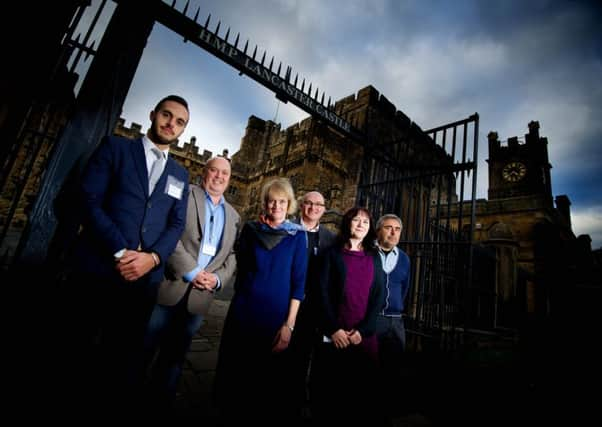Spooky tales are focus of university researchers


Organised by the University of Central Lancashire’s Institute for Dark Tourism Research, together with project partners from the Universities of Manchester Metropolitan, Bath, Durham, Hull, and York, the ‘Packaging up Death and the Dead for the Contemporary Visitor Economy’ conference invited speakers from the UK and USA to examine society’s interest in sites of death and disaster.
The booked-up event was held at one of Lancashire’s most iconic site of dark tourism, the former ‘A Wing’ of HM Lancaster Prison at Lancaster Castle.
Advertisement
Hide AdAdvertisement
Hide AdExecutive director of the UCLan Institute for Dark Tourism Research, Dr Philip Stone, organised the conference.
He said: “Over the past 20 years or so there has been an increasing academic and media focus on ‘dark tourism’, which has the capacity to expand boundaries of the imagination and to provide the modern visitor with potentially life-changing points of shock.
Dr Stone added: “Dark tourism and cultural heritage overlap when considering themes of war, disaster, tragedy or social conflict, and memory and identity are in question.
“Of course the interpretations of these themes are understandably prone to concerns about inclusion, exploitation, sensitivity and appropriateness.
Advertisement
Hide AdAdvertisement
Hide Ad“I would argue that developing touristic opportunities at particular difficult heritage sites is an increasing, and perhaps inevitable, feature of creating what is known as contemporary traumascapes; sites which bear the physical and psychological scars of suffering.”
Another UCLan speaker, associate lecturer in tourism management Dr Daniel Wright, shared his provocative research which paints a sombre scenario for the future of tourism in 2200 in which hunting humans could become a form of tourism entertainment.
He said: “What the future of tourism will look like is open to debate. Hunting humans: A future for tourism in 2200, is a research paper that explores past and current societal trends. What I’ve presented is a provocative dystopian future scenario where entertainment, violence and human assassination are seen to be a normalised tourist activity.”
Dr Stone added:“This conference was a huge success in the sense it brought local, national and international scholars, students, and industry people together from a broad array of subject areas.”